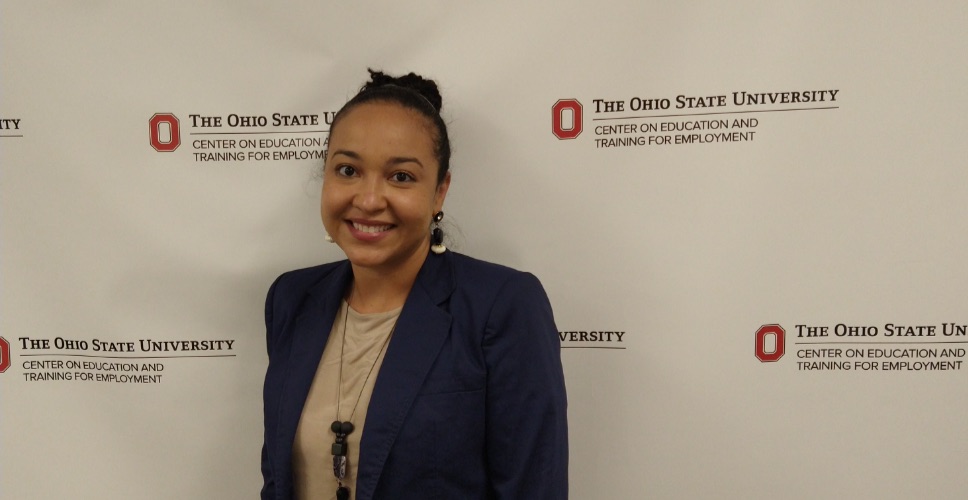 Vivian Martins
Vivian Martins
I am from Brazil, and I am a doctoral candidate in education from the State University of Rio de Janeiro. I was a visiting scholar at Ohio State’s Center of Education and Training for Employment (CETE) from January to July, and I worked with Dr. Ana-Paula Correia on research in online education, learning and curriculum design and educational technology.
Staying at Ohio State as a visiting scholar changed how I saw the world, improved my career and improved my research. I had a positive experience working with members of CETE, because they are respectful professionals with interesting research.
For me, studying education, it was a great opportunity to see a university different from Brazil. I was very well-received when I visited any space at Ohio State, and I am immensely grateful for this experience. People in Columbus are kind and treated me very well. The culture was so interesting, and it was fascinating to understand the American way of life.
I’m specialized in planning implementation and management of distance education, and I have been working in this area for the past 10 years. Online education has a lot of demands now, and I could understand and see the process, the curriculum, the education and the technology that was used with Dr. Correia.
At Ohio State, I studied mobile learning, which is a great area to learn about, because not all students in Brazil have the opportunity to use technology, but also an increased number of students are using smartphones.
Something that I studied at Ohio State was social justice education, racial and diversity studies, because I was included in the Racial Equity, Diversity and Inclusion (REDI) Journey with CETE. These themes inspired me, and he course and the critical allies group were a great surprise.
The discussion about technology, communities and social justice is important in Brazil, because we have economic and social difficulties. We have a more digital divide than in the United States. I want to understand students’ reality, and I don’t want to neglect social issues in my research.
I think those discussions changed my views and my career, learning how I can teach my students and keep them in the classroom. This was a great opportunity to improve my dissertation with my time in the United States.
In conclusion, I would like to thank my advisors Dr. Correia and Edméa Santos for this opportunity and for always encouraging and supporting me. It is also important to note that this study was financed by the Coordenação de Aperfeiçoamento de Pessoal de Nível Superior and the Instituto Federal do Rio de Janeiro, Brasil, and I am thankful for their support.